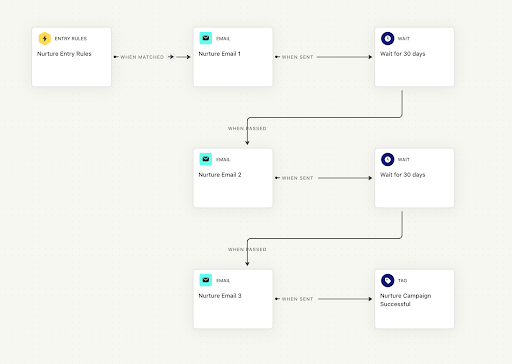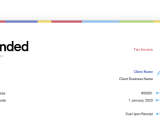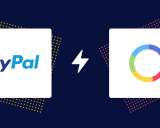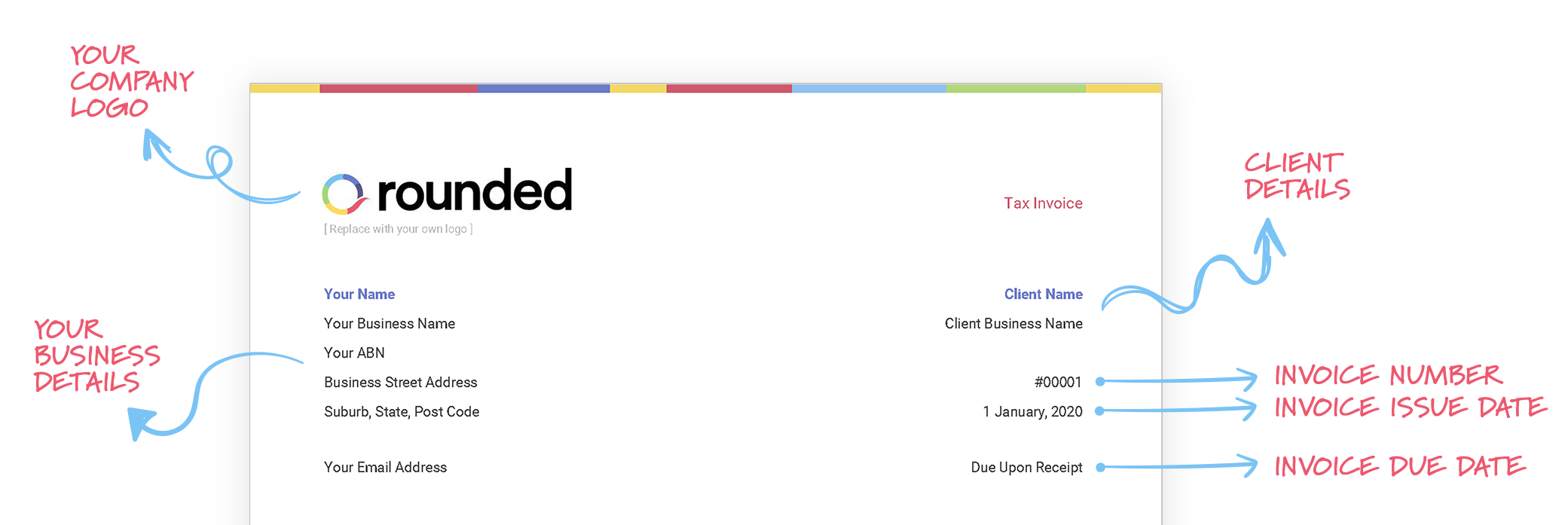
How sole traders can put lead generation on autopilot (and get back to real work)
Customer success specialist Richard Le Bas walks us through how sole traders can automate their lead generation and nurturing systems to bring in more business with less stress.
Article contents
− +- Introduction
- Richard’s journey as a business owner
- What does customer success actually mean?
- What are the top 3 mistakes sole traders make with customer success?
- How can sole traders leverage automation for lead generation and nurturing?
- Growing from sole trader to company
- Richard’s experience with Rounded
- Richard’s #1 tip for sole traders

In our Customer Spotlight series, we’re interviewing experienced freelancers in the Rounded community to share their stories and the lessons they’ve learned. This month, we caught up with Richard Le Bas from Sabel Customer Success Solutions.
Sabel Customer Success Solutions is a consultancy that helps sole traders and small businesses improve their customer experience through automation. As an Intercom Service Partner, Sabel specialises in helping businesses set up automated lead generation and nurturing systems that help attract, onboard, and retain new customers.
Richard walks us through:
How he scaled from a business of one to an agency
What customer success actually means and the top mistakes sole traders are making
How sole traders can leverage automation for lead generation and nurturing
Let’s dive in!
Richard’s journey as a business owner
Richard first began freelancing during COVID lockdowns as a way to combat boredom at home.
Like a lot of people, I had too much time on my hands and not a lot to do. I got tired of the 5k radius I was in and thought, “You know what? I’ll start a business.” So I put my years of customer success experience to use and started reaching out to small and medium-sized businesses who didn’t want to hire someone in-house.
After securing his first few clients, Richard decided to look for accounting software that would help him keep his finances organised as he grew.
I was searching for solutions that could work for a sole trader and Rounded was the first one that came up. It was Australian, which was perfect since I knew I had to track GST and that an international solution wouldn’t be as good at that.
Soon after signing up, Richard reached out to the Rounded team to offer his services.
I saw Rounded’s support team was using a live chat tool called Intercom, which I have a lot of experience with. So I reached out and asked if they needed help setting up their onboarding and customer success systems. Olly [Rounded’s cofounder] replied and was willing to have a chat. We’ve been working together ever since.
Rounded became Richard’s first Intercom client, but it didn’t stop there. Inspired by a conversation with Olly, Richard realised the potential of specialising in Intercom consulting.
Olly said to me, ‘Intercom has grown so much, but if you don’t invest the time, you won’t get everything you can out of it. There are so many businesses paying for it but not fully utilising it. You should focus on that.’ I thought, ‘That’s not a bad idea.’ Four years later, here I am.
Today, Richard works with clients worldwide, supported by a team of three full-time employees and additional contractors. His approach stands out because he combines technical expertise with a customer success lens.
We don’t just come in and set up Intercom—that’s something anyone on Upwork can do. We start by understanding your business, your customers, and their experiences. What do they need to achieve, and how can we make that happen?
From there, we map out the customer journey and apply that to Intercom. It’s not just about setting up the platform; it’s about creating meaningful, relevant experiences that add value for customers.
What does customer success actually mean?
At its core, customer success is about building long-term relationships with your clients or customers by ensuring they achieve their goals and derive ongoing value from your business.
There are a few different approaches, but Richard uses what is known as the AARRR methodology of customer experience improvement.
This breaks down the customer journey into five key pillars:
Acquisition: Attracting potential customers.
Activation: Ensuring customers start seeing value quickly.
Retention: Keeping customers engaged and satisfied over time.
Revenue: Maximising lifetime value through upselling or cross-selling.
Referral: Turning happy customers into advocates.
Richard and his team focus on the first three, helping business owners to:
Leverage tools and automation to attract the right audience to their website and guide them toward a purchase decision. The focus is not just on volume but on quality, ensuring business owners acquire customers who will be the right fit.
Deliver a seamless onboarding experience and help customers understand the value they will get. This stage is all about aligning expectations—what the customer wants to achieve and what a business promises to deliver.
Engage customers and ensure they continue to find value. Retention strategies might include regular check-ins, updates, or personalised recommendations. By addressing their evolving needs and keeping them satisfied, business owners ensure a win-win situation: customers benefit, and businesses maintain recurring revenue.
What are the top 3 mistakes sole traders make with customer success?
1) Focusing too much on lead capture and not enough on lead nurture
One mistake Richard often sees is business owners spending the majority of their time, energy, and budget on marketing without following up on leads.
Many potential clients aren’t ready to buy the moment they visit your site. Staying top of mind through regular check-ins is essential because timing is everything.
Thankfully, your lead nurturing can be automated. It doesn’t have to feel robotic, either—automation tools allow you to personalise interactions with specific details about each customer.
Richard recommends setting up a nurture sequence to build trust and showcase your expertise. By doing so, when a lead is ready to make a purchase, your business is the first that comes to mind.

2) Being slow to respond to messages
Most sole traders have little time to stay on top of potential client messages. As Richard says:
In the daytime, you’re doing your job. At night, you don’t want to be doing your admin work and responding to emails – you want to just be living your life.
Over 50% of customers will choose the business that responds the fastest, even if the price is more expensive. If a competitor replies before you, you could lose out.
The key to speedy responses is automation. Automated systems can instantly answer common questions, like pricing or service details, even while you sleep.
This ensures potential customers get the information they need without delays, improving your chances of conversion.
3) Pausing lead generation
Many sole traders make the mistake of stopping their marketing efforts once their schedules are full. Richard explains:
It’s tempting to stop lead generation when you’re busy with clients. After all, you’ve got work to do, and it feels like there’s no time to focus on attracting more. But that’s the catch of running a business—you have to balance serving current clients with keeping future opportunities alive.
Even if your schedule is full now, unexpected changes—like a client ending their contract—can leave you scrambling to fill a financial gap. Without a steady flow of new inquiries, the downtime between projects could impact your bottom line.
By leveraging automation, you can keep leads coming in without extra effort.
Automated systems can nurture prospects and keep your business top of mind, so you’re in demand when they’re ready to buy.
For example:
A wedding photographer might set up an annual email campaign, reminding potential clients of their services just as they start planning their big day.
A painter could send periodic reminders to past leads, so when someone decides to renovate, their email is the first to pop up.
Richard highlights the importance of consistency:
You never know when someone will need your services. Automation ensures you’re in the right place at the right time. It’s just like the lottery—you have to buy a ticket to give yourself a chance to win.
Even during busy periods, maintaining a steady flow of inquiries means you’re always prepared for the future, building stability and growth for your business.
How can sole traders leverage automation for lead generation and nurturing?
We asked Richard to give us a demo of his own automated customer engagement set-up in our webinar, Smart Automation for Freelancers: Capturing Leads & Engaging Customers 24/7.
Take a look here:
Growing from sole trader to company
Transitioning from a company of one to a team hasn’t been without its challenges.
Our main challenge has been building the business while keeping the personal side of things. We’ve worked with many of our clients for years and they see us as an extension of the team. We’re involved in meetings and regular catch-ups, and we’re seen as a trusted advisor that they can pass work off to and know it will be done properly.
It can be difficult, but you’ve got to keep that relationship and trust with businesses. If you
try to grow too much and spread yourself too thin, then you start to lose that.
Another key challenge, according to Richard, is choosing the right people.
You want to hire people who will provide the same experience your clients expect from you, which can be very tricky. As a solo business owner, you know you're going to do the best job you can and everything will get done the way you need to do it because you're the one doing it.
Delegation can be a challenge in any business, but it can be especially hard if you’re transitioning from freelancer to employer. To succeed, you need to make sure you’re giving your team enough control and responsibility to do the job.
Richard’s experience with Rounded
Although Richard no longer uses Rounded, he still has fond memories:
I loved it and was sad to leave, to be honest. The platform is great and does exactly what you need as a sole trader.
When I was looking for a new solution that would suit a business with employees, I was trying out other tools and noticing that they aren’t as intuitive, or they’re just harder to use. A lot of them are also quite dated, and you feel like you’re in the early 2000s.
Rounded is very modern in the way it looks and acts. The support is amazing – which, again, you don’t get when you go for a bigger solution. You’re just a small fish in a big pond.
Richard’s #1 tip for sole traders
Invest in automation and AI tools as early as you can. Start small and focus on the things that will get you small wins, because those will add up.
If you can put these things in place early, it's a lot easier to chip away at them than it is to do it all at once. It’s the same as being in school and cramming right before the night of an exam, versus studying over the term.
Some of the tools that Richard recommends for sole traders include:
ChatGPT for writing
Intercom for lead nurturing and customer engagement
Fireflies for meeting recordings and notes
Apollo for outreach and lead generation
Zapier for automation
As a final word of advice, Richard says:
Just because you’re responsible for everything in your business doesn’t mean you have to do everything manually. If you can save hours a day, or hours a week, that's more time you could spend doing something with a customer or client, which equals money.
Looking to create a smarter lead capture and nurture system for your business?
Get in touch with Richard and the team using the links below.
Website: https://www.sabelcustomersuccess.com/
Connect with Richard on LinkedIn: https://www.linkedin.com/in/richard-le-bas-03677743/
Contents
- Introduction
- Richard’s journey as a business owner
- What does customer success actually mean?
- What are the top 3 mistakes sole traders make with customer success?
- How can sole traders leverage automation for lead generation and nurturing?
- Growing from sole trader to company
- Richard’s experience with Rounded
- Richard’s #1 tip for sole traders
Join newsletter
ABOUT ROUNDED
Invoicing and accounting software for sole traders. Get paid faster and relax at tax time.



























